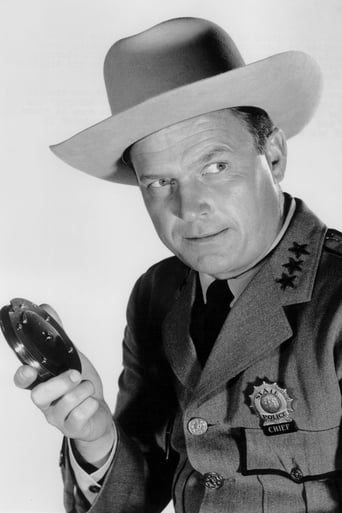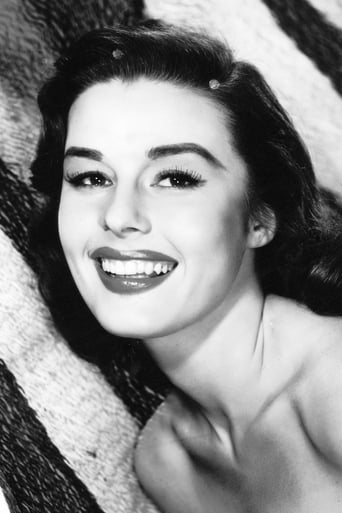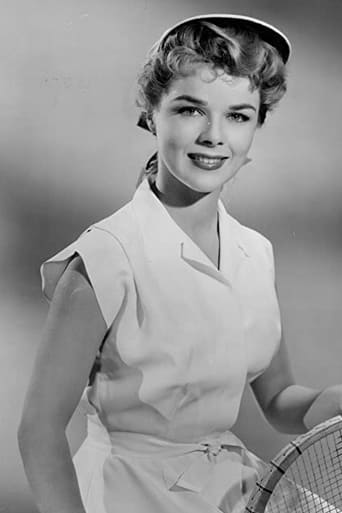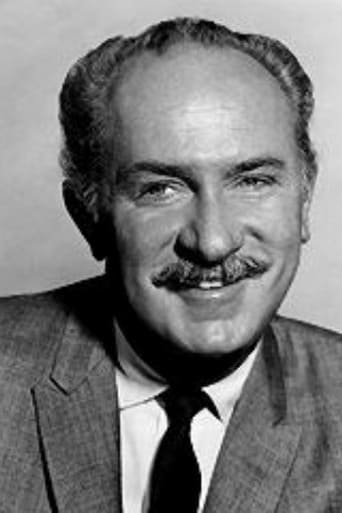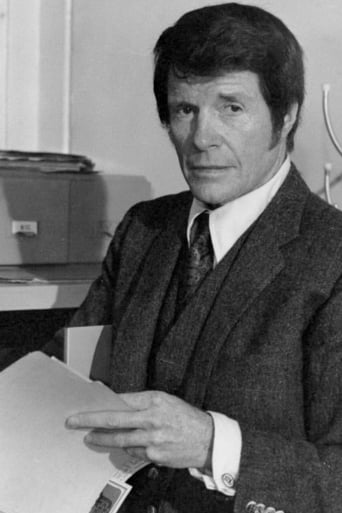Nessieldwi
Very interesting film. Was caught on the premise when seeing the trailer but unsure as to what the outcome would be for the showing. As it turns out, it was a very good film.
Connianatu
How wonderful it is to see this fine actress carry a film and carry it so beautifully.
Ketrivie
It isn't all that great, actually. Really cheesy and very predicable of how certain scenes are gonna turn play out. However, I guess that's the charm of it all, because I would consider this one of my guilty pleasures.
Darin
One of the film's great tricks is that, for a time, you think it will go down a rabbit hole of unrealistic glorification.
a_chinn
Corny but enjoyable crime story about rookie LA motorcycle cops, Ralph Meeker and Jeff Richards. It's kind of a 1950s version of "CHiPs." Meeker and Richards face typical street cop challenges, but the film turns a bit serious when Richards is killed and Meeker goes after those responsible. I enjoyed the use of real-life locations and I always enjoy Meeker, so that was enough to elevate the cornball script.
swojtak
I was an LAPD Explorer in the late 1960"s and had shot on the Academy pistol range. The movie showed the Los Angeles Police Department Headquarters (outside) before Parker Center was built. It also showed the real Academy with the pool, parade ground, a fenced area, indoor training area, dispatch, and pistol range. The part that was not real was the dining room. The dining room looked like a movie set. Some of the the motorcycle training looked real too like laying down the bike and driving through the cones. Like I learned during my motorcycle training course (civilian), it does not take much of a rider to go fast. The trick is how slow can you go!. It was also interesting how the movie gave a plug for the Los Angeles County Sheriff's Department. The movie had everything I like bikes, guns, and cops. What else is there.
mark.waltz
This crime drama with smidgens of elements of film noir in it starts off as a view of the training that motorcycle policemen go through before being sent out onto the road. That takes up almost half of the film's very short running time, and by the time the rookie (Ralph Meeker) is on the road, he's only got one crime here to deal with, that of the capture of a gang of smugglers who killed another rookie and left him dead in the middle of the highway.For the first half, exposition is the theme, and you get lots of training footage and arguments between Meeker and one of his trainers (Keenan Wynn, who also narrates). Once the plot thickens, then the action really occurs, the murder of the cop actually pretty brutal and the discovery of who is behind it very clever. The conclusion is also very graphic, involving a tub of lye that threatens to instantly dissolve whatever lands in it. For that, the film is worth putting up with the slow first half, which makes it seem as if this was intended as the start of a "B" series which never took off.
dinky-4
The first half of this modest 69-minute movie tells, in semi-documentary fashion, of the training of rookie cops in early 1950s Los Angeles. Needless to say, all these rookies are white males but it's the "dated" quality of the movie which lends it a curiosity value as an artifact of its time. Police buffs should enjoy looking over the equipment, the uniforms, the training techniques, the investigation methods, etc.A let's-catch-the-cop-killers plot takes over in the second half. It's minor stuff but affords an opportunity to look over a cast soon to find greater success in TV westerns. There's Robert ("Wagon Train") Horton and Jeff ("Jefferson Drum") Richards and -- in a small part -- Chuck ("The Rifleman") Connors. Rounding out the cast of cops are Ralph Meeker and Keenan Wynn. There's a certain "fetish" appeal in seeing these men in boots and leather jackets and motorcycle pants, and Meeker, Horton, and Richards also do a "beefcake" scene by a lake where they appear in swimsuits. (Richards must have tipped the wardrobe department to give him the snuggest-fitting suit.)
A few scenes appear to be shot on actual L.A. streets but much of it is recognizable as the MGM back-lot. Somewhere, on one of those hills, Robert Horton would soon be stripped to his shorts and tortured by North Korean guards in "Prisoner of War."Director Fred Wilcox later helmed the classic "Forbidden Planet."

